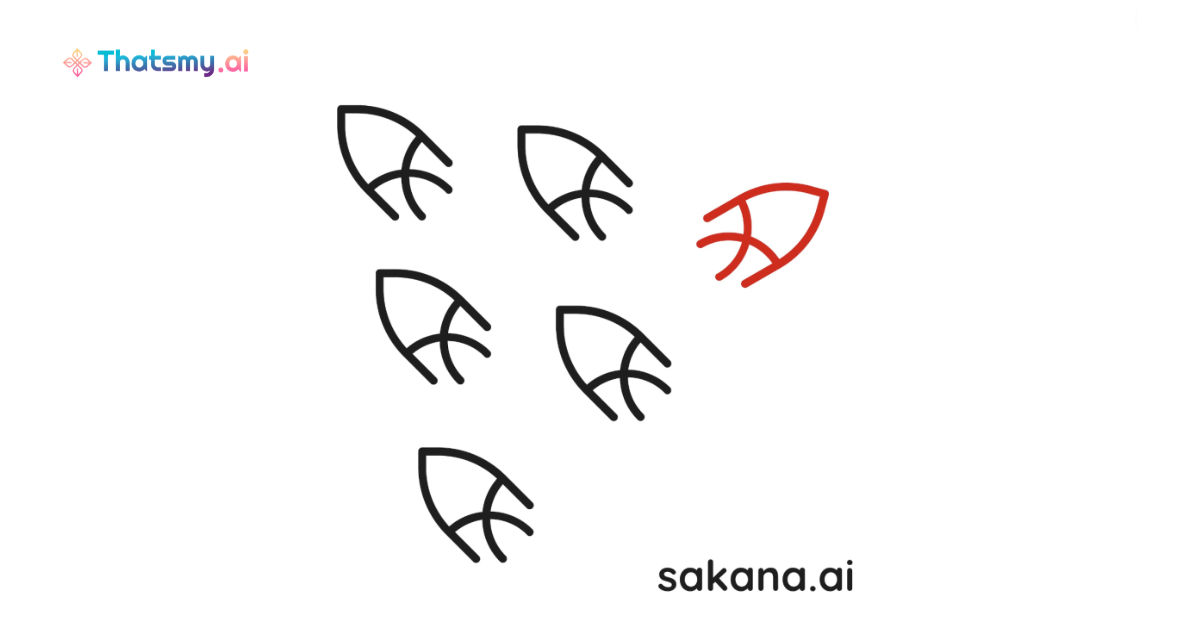Sakana AI has launched AI Scientist, an AI tool that writes scientific papers for $15, potentially transforming academic publishing by making it more efficient and affordable. While the tool offers significant time savings and accessibility, it also raises ethical concerns about academic integrity. Sakana AI addresses these with transparency features, ensuring users disclose AI-generated content. As AI evolves, tools like AI Scientist could play a major role in the future of research and academic writing.

Sakana AI has recently introduced a groundbreaking tool called "AI Scientist," which promises to revolutionize the way scientific papers are written.
For only $15 per paper, this AI-powered tool generates well-structured scientific documents, making it an attractive option for researchers, students, and professionals looking to save time and effort in drafting their work.
AI Scientist is designed to automate the creation of scientific papers by leveraging advanced natural language processing (NLP) algorithms. Users can input their research data, keywords, and key points, and the AI quickly produces a draft that adheres to the structure and style typical of academic writing.
The tool claims to ensure that the content is coherent, follows scientific rigor, and is formatted according to academic standards.
For researchers, this means significant time savings. Instead of spending days or weeks writing a paper, they can generate a draft in minutes. This efficiency is particularly valuable in academia, where the pressure to publish is high, and deadlines are often tight.
The $15 price point makes AI Scientist accessible to a broad audience, from undergraduates working on their thesis to seasoned researchers managing multiple projects.
By making high-quality scientific writing affordable, Sakana AI aims to democratize access to professional writing tools, thereby leveling the playing field for researchers from all backgrounds.
This affordability does not come at the cost of quality. The AI Scientist tool has been trained on a vast dataset of scientific literature, allowing it to mimic the tone, structure, and depth of real scientific papers.
Users can also customize the output to align with their specific requirements, making it a flexible solution for a wide range of academic disciplines.
While AI Scientist offers remarkable benefits, it also raises ethical questions. The ease of generating scientific papers could lead to misuse, such as the creation of low-quality or fraudulent research.
There are concerns about the potential impact on academic integrity, as the line between AI-generated content and human-authored work becomes increasingly blurred.
To address these concerns, Sakana AI has implemented features that allow for transparency and accountability.
For example, users must disclose that the paper was generated using AI Scientist, ensuring that the use of the tool is transparent. Additionally, the company is exploring partnerships with academic institutions to develop guidelines for the ethical use of AI in research.
The introduction of AI Scientist could have far-reaching implications for the future of academic publishing.
As AI tools become more sophisticated, they may play a larger role in the research process, from data analysis to writing and editing.
This could lead to faster dissemination of knowledge, as researchers can produce and share their findings more efficiently.
However, the academic community will need to navigate the challenges that come with this technological shift. Ensuring that AI-generated content is used ethically and responsibly will be crucial to maintaining the integrity of scientific research.
Sakana AI’s AI Scientist is poised to transform the landscape of academic writing. By making it easier and more affordable to produce scientific papers, the tool could democratize access to academic publishing and accelerate the pace of research. However, its use must be carefully managed to avoid ethical pitfalls and ensure that the quality and integrity of scientific work are upheld.
As AI continues to evolve, tools like AI Scientist could become indispensable in academia, offering a glimpse into a future where technology and human ingenuity work hand in hand to advance knowledge.
Sign up to gain AI-driven insights and tools that set you apart from the crowd. Become the leader you’re meant to be.
Start My AI Journey
ThatsMyAI
23 February 2025

ThatsMyAI
4 November 2024

ThatsMyAI
18 October 2024

ThatsMyAI
25 September 2024